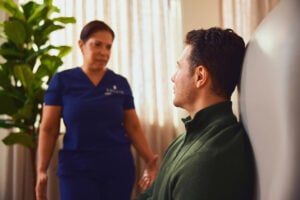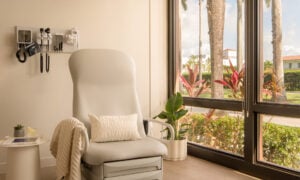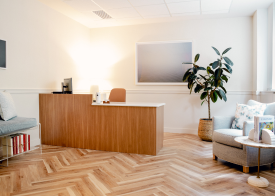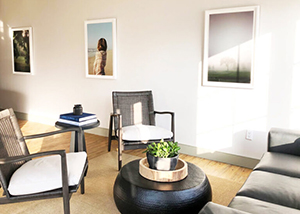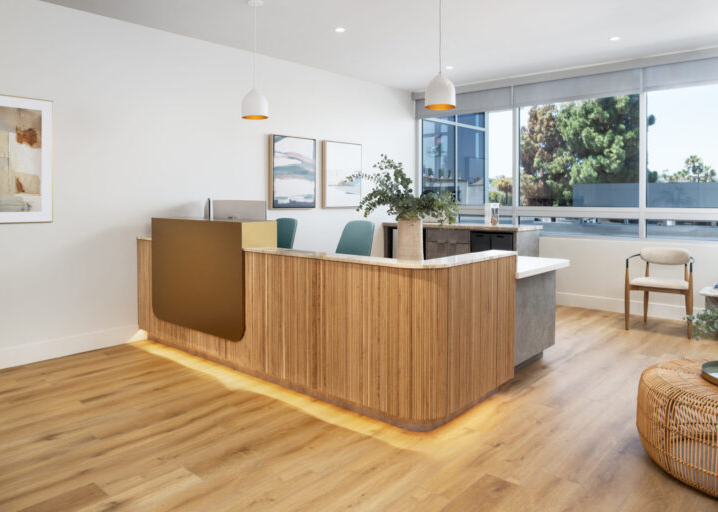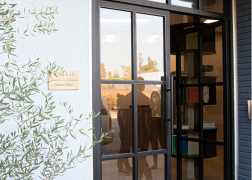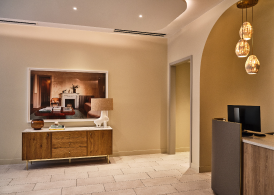Tell us a little about how you were diagnosed with narcolepsy. What led up to it, what had you been experiencing, and what type of doctor was able to finally get it right?
Looking back now, I had symptoms for nearly 20 years before being diagnosed. I complained about fatigue to doctors as far back as high school. But even at 17, my general practitioner pointed to my schedule packed with extracurriculars and suggested that I “do less things” and might feel less tired. These symptoms continued through college and once I started working. There were years where it wasn’t that bad, followed by months that were miserable. But I also moved around a lot for work. I worked in politics and spent several years as an advance person for President Obama. So this meant starting over with new general practitioners regularly. When my fatigue was particularly bad I would bring it up with my new GP. Sometimes they would run blood tests—like checking my thyroid. Other times they would reference my job and suggest my schedule was to blame. Usually they talked about “Sleep Hygiene” with me, suggesting that I was not doing enough to get a good night’s sleep. Or I was spending too much time behind a screen, not ensuring I had eight full hours to get a good night’s rest, or doing things like working in bed. And it’s true, I did have a punishing work schedule and I absolutely spent too much time behind a screen. But I didn’t understand what was normal and had no way to understand that my excessive daytime sleepiness was far worse than what my peers felt under the same circumstances. I started to think I was just a “sleepy person.” When I was 27, my internist went a step further and sent me for a sleep study to look for sleep apnea, but it came back negative, which seemed to cement my sleepy status. So I drank a lot of coffee and pushed on.
“I don’t fall asleep in my soup!! People with narcolepsy don’t just keel over the way you’ve seen in movies.”
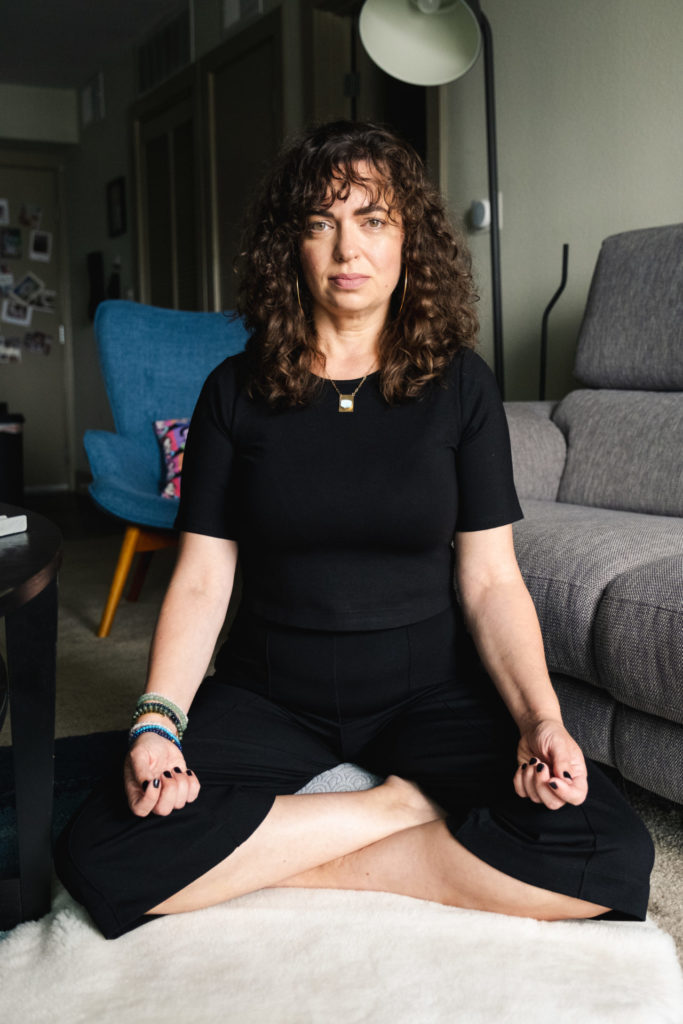
Narcolepsy has five distinct but seemingly unrelated symptoms. Excessive daytime sleepiness, which often includes sleep attacks—where fatigue comes on so heavy and fast you have no choice but to go to sleep. Sleep paralysis, when you appear to be dreaming but are unable to move your muscles or speak. Hypnagogic hallucinations, experiencing something that is not there when falling asleep or waking up. Fractured sleep, having a hard time falling asleep and staying asleep. And cataplexy, losing muscle tone in a part of your body in response to a strong emotion. I had no idea that all of these things that happened to me, at some point or another were actually symptoms. I thought everyone had sleep paralysis all the time!! And the things that didn’t feel normal, I didn’t have a good enough vocabulary to explain them to my doctor. For instance, I had spoken to my doctor about my extremely vivid “nightmares” and was told that it was likely stress. My doctor didn’t ask questions about what was happening in my dreams. Like that I regularly saw things coming after me in my bedroom and I couldn’t move to get away from them. This wasn’t a nightmare at all but a hallucination coupled with sleep paralysis. When I tried to tell my doctor I was awake for large chunks of time at night, my doctor thought this was due to anxiety and suggested a higher dose of anti-anxiety meds.
When I was 34, I started waking up in the middle of the night and was unable to go back to sleep. My anxiety got really bad. I seemed to have no control of my emotions. Just after my 35th birthday I started having severe sleep attacks. A sensation that if I don’t go to sleep right now, I will die. I would regularly sleep in the bathroom, curling up on a toilet and taking a short nap to try and make it through the day. After one of these particularly scary episodes, I made an appointment with my GP. She sent me for a sleep apnea sleep study that was, once again, negative. I was furious. I literally couldn’t take this anymore. So I went back and pleaded for help. She sent me to a Sleep Specialist and was diagnosed with narcolepsy three months later.
What was it like being misdiagnosed and dismissed by the medical community, and how did it feel to get the correct diagnosis at last?
It was so frustrating to constantly be told over and over that something was either not as bad as I thought, or that it was in my head, or worse — was being caused by my own behavior. But beyond all of that—it was lonely. If everyone else was moving through life just as tired as I was, why were they able to function so much better than I was? Receiving a diagnosis was elating, a name to the years of frustrated exhaustion. A word explaining it hadn’t been in my head. I was more tired than that.
In a previous article you referenced night terrors. Why do you think your night terrors tended to center on a child asking to hold your hand? Are hypnagogic hallucinations random, or do they reflect something about us?
Before you are diagnosed with something you rarely have the language to discuss it correctly. So while I thought most of the things I was seeing and hearing at night were night terrors, they were actually hallucinations. Hallucinations can happen as you are falling asleep or waking up. While this particular instance of a ghostly child asking to hold my hand happened a few times, it is one of hundreds of hallucinations I’ve had, which can be visual, auditory, touch, or sound. The majority of my hallucinations tend to be auditory. I’ve never placed any rhyme or reason to them. I have heard people talking outside my window that weren’t there, conversations with my partner that didn’t happen, people speaking in different languages, a rooster in the hallway of my apartment building etc. But I’ve also had visual hallucinations including strange animals in my room, doors closing that were opened, or flashes of light circling my room. I’ve never had them, but I know other people with narcolepsy that have had hallucinations where they could feel things or smell something that wasn’t there.
“I have had coworkers and friends not understand. I get comments about, ‘I wish I could take a nap,’ or ‘Can’t you just drink a bunch of coffee?’ I take time to explain that I have a neurological condition.”
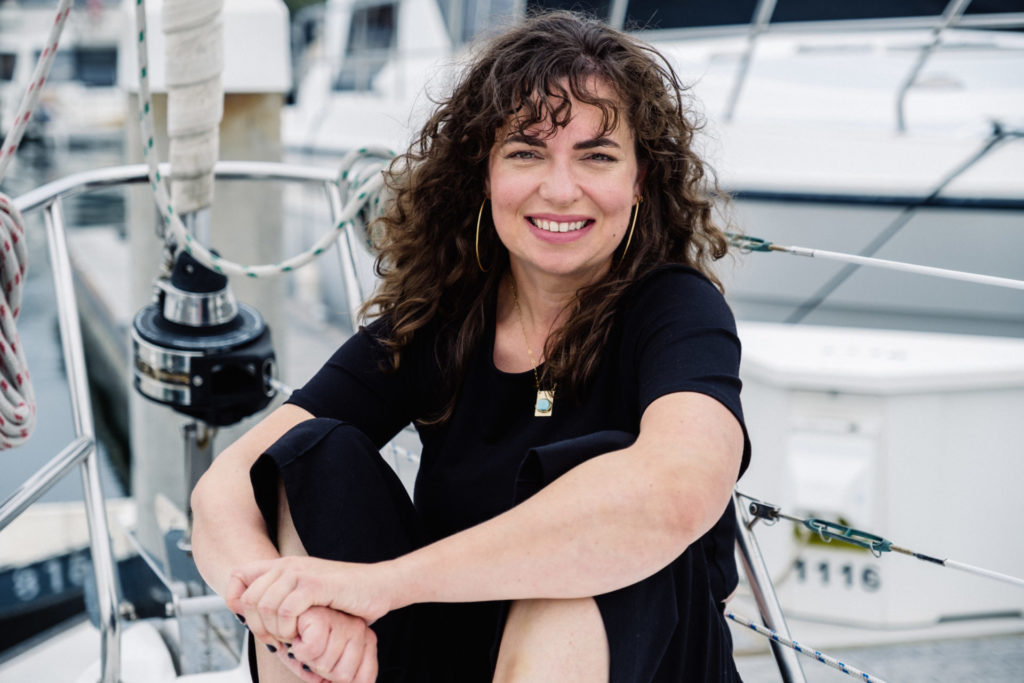
As you once wrote, “With narcolepsy you don’t get better; you get better at having narcolepsy.” What does that look like, day to day, and what sort of treatments or medications have helped?
There is no cure for narcolepsy or even a novel treatment. Nothing like insulin for diabetics. There is no linear path to treatment either. So it’s not like you instantly feel better once you get a name for it. But there are treatments that can help alleviate some of the symptoms. I have been through many combinations of medications to get where I am now. I take a stimulant during the day to help me stay awake. Contrary to what most people think, people with narcolepsy have a very hard time staying asleep and it is very hard to get deep sleep. So sleep is very rarely restorative. Because of this, I also take medication that helps me stay asleep and get more deep sleep. I have become better at managing symptoms as well. I nap every day to make the afternoons easier. I meditate everyday to keep my stress down. I don’t eat heavy carbs when I am going to need to be alert. But it remains a super challenging disorder that affects my life in some way every single day. Sometimes medications stop working or I get a side effect that is worse than what I am being treated for and I need to start something else. It generally takes weeks or even months for a new medication to start working effectively. These periods used to wreck me emotionally, but I’ve gotten better at accepting these time periods now and give myself a lot of grace on the hard days.
How has narcolepsy impacted your anxiety—or is it vice versa?
When I am exhausted my anxiety creeps in. So for years I thought this is what I had. Anxiety medications generally didn’t do much for me. So I tried several different types and varying doses. When I started treatment for Narcolepsy I quickly saw a connection between exhaustion and anxiety. And as soon as I got to a good place with medication, the anxiety was gone. So now, when medications are working at their best I have very few anxiety symptoms. When my medications aren’t working as well or I am tired from travel or a big work week, my anxiety will get worse. This is an indicator for me that I need to get my body some rest or tweak my medications.
Have you ever encountered a lack of sympathy about your narcolepsy from a friend, family member, or partner? If so, how have you managed to navigate the situation?
I am beyond blessed to have my partner and my family, both have been amazing at understanding my diagnosis and the needs of my disorder. My partner is my rock. He follows medication changes and helps me track potential side effects. He’s also there to just give me a hug when it’s a rough day and I just want support. I have had coworkers and friends not as understanding or respectful. Usually it’s about education. So when I get comments about, “I wish I could take a nap” or “Can’t you just drink a bunch of coffee?” I take time to explain that I have a neurological condition and why I need to do the things I do. However, at this point in my life, I am very comfortable with walking away from friendships that don’t understand or respect my condition. I live in LA and have to drive everywhere. I often need to cancel things if I think driving will be dangerous for me. If you can’t give me a pass because I needed to cancel dinner to avert hurting myself or others, this is no longer a relationship I need in my life.
With 200,000 people in the U.S. suffering from narcolepsy but only 1 in 4 getting diagnosed (and only after an average of 10 years!), what can be done to help remedy this?
Education!! And while narcolepsy affects one in 2000 people, one in five has a sleep disorder. We need to talk about sleep disorders anywhere and everywhere and not just specific disorders. The vast majority of doctors are not educated in recognizing or diagnosing sleep disorders. So it takes A LOT of self advocacy on the part of the patient. However, I never in my wildest dreams would have suspected narcolepsy and looked up the symptoms. There are over 80 sleep disorders and I want people to know fatigue can come from more than work stress or a bad mattress. If they feel like no matter what they do, they are remaining exhausted or any number of other symptoms a Sleep Specialist can help them!
In what ways will Sollis be helpful as you continue to manage your narcolepsy?
I’m really lucky to have such a supportive partner and family, but to know that I also have a 24/7 emergency medical contact is of course a huge relief. No more late night Google search spirals!
What do you think is the biggest misconception about narcolepsy? Is there anything you wish you could make people understand better?
I don’t fall asleep in my soup!! People with narcolepsy don’t just keel over the way you’ve seen in movies. I’m also not lazy when I can’t get out of bed or need to take a nap in the afternoon.
What advice do you have for anyone who might be quietly struggling with narcolepsy—or any other chronic sleep condition—and is feeling unsure how to get help?
Your concerns ARE valid. You ARE that tired. If your doctor dismisses you, go to another one. It’s OK to push back and ask for more help. Ask your doctor to send you to a Sleep Specialist.
Any good words to live by?
No matter what is happening in your life, give yourself grace. You are doing the best you can with the resources you have.

